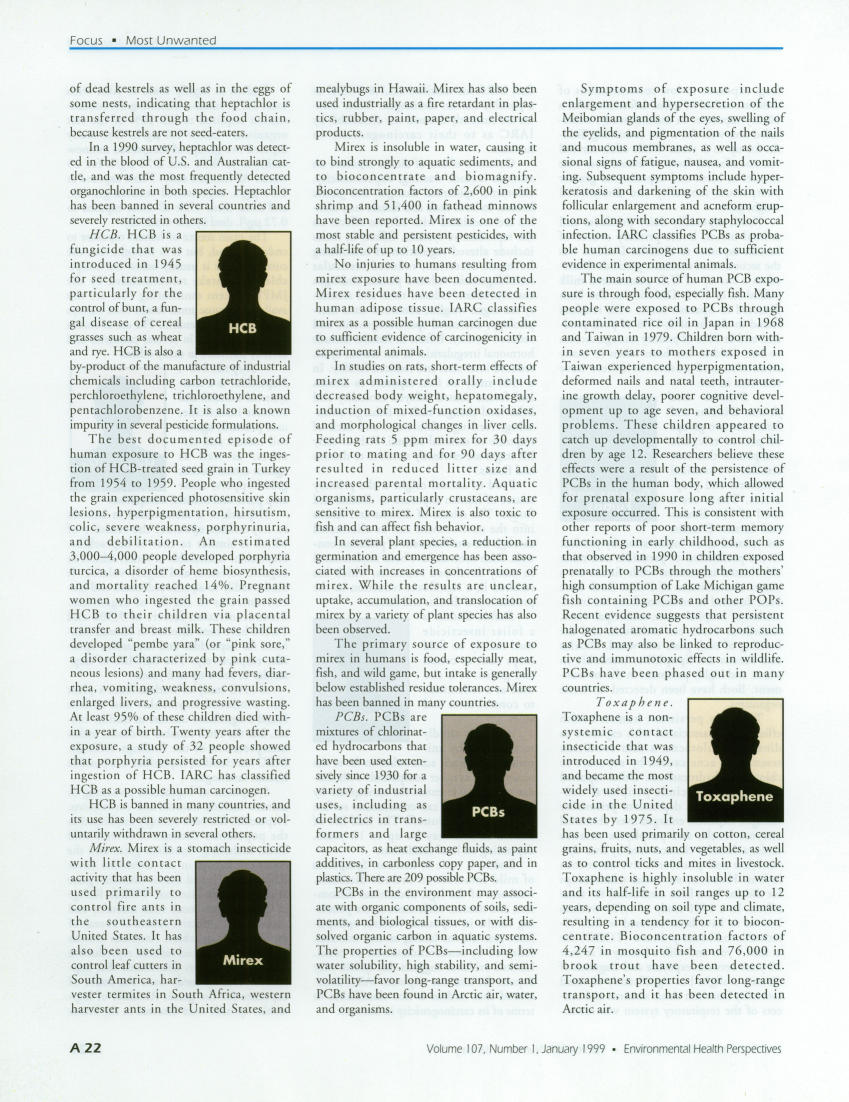Abstract
Persistent organic pollutants (POPs) can travel thousands of miles, accumulate in the food chain, and persist in the environment, taking as long as centuries to degrade. POPs are known to play a role in birth defects, cancer, immune system dysfunction, and reproductive problems in wildlife. While the effects of POPs on human health are unclear, many researchers believe that long-term exposure contributes to increasing rates of birth defects, fertility problems, greater susceptibility to disease, diminished intelligence, and certain cancers. Twelve POPs have been identified by the United Nations Environment Programme as requiring urgent regulatory attention. They include the pesticides aldrin, chlordane, DDT, dieldrin, endrin, heptachlor, hexachlorobenzene, mirex, and toxaphene. Of the remaining three POPs, polychlorinated biphenyls are industrial products (used in electrical transformers), and dioxins and furans are unintentional by-products of industrial processes.
Full text
PDF







